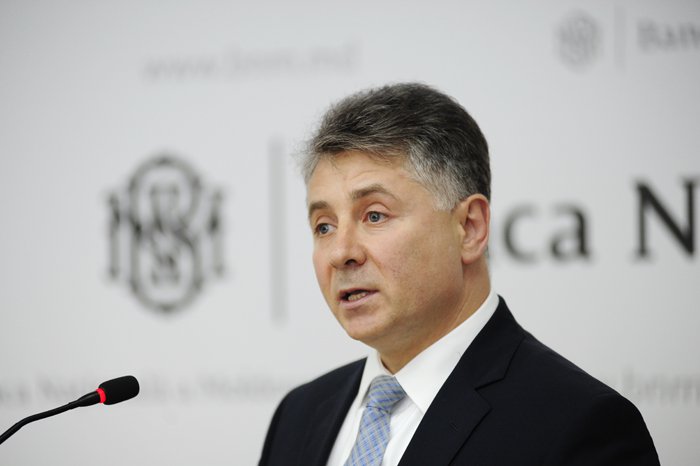National bank presents inflation report, downward trend tends to remain in Moldova
21:48 | 03.08.2018 Category: Economic
Chisinau, 03 August /MOLDPRES/ – The disinflationary trends recorded in 2018 will continue to persist in upcoming months too. The annual inflation rate will shrink from 3.2 per cent in June 2018 to around 1.9 per cent on average for fourth quarter of 2018 below the lower bandwidth of ±1.5 percentage points from the inflation target of 5 per cent, said today the first deputy governor of the National Bank of Moldova (BNM), Vladimir Munteanu, in the presentation of the Inflation Report №03.
The BNM official added that at the beginning of 2019, inflation trajectory will reverse and inflation is expected to increase to 6.5 percent in the third quarter of 2019 as a result of low base in 2018, significant increase in international oil prices in recent 12 months to $70 – $80 per barrel.
The rhythm of rising food prices will decrease in 2018, with reversal of trend in the second half of 2019. The annualised rate of regulated prices will fall to -4.4 per cent in current quarter, but will then accelerate, exceeding 10 per cent in the second half of 2019. After the quarter – on – quarter increase, the annual growth rate fuel prices will have a downward trajectory throughout the forecasting period.
According to the first deputy governor, the projected average annual inflation rate of 3.2 per cent for 2018 is lower by 0.1 percentage points compared to projections in Inflation Report №02. The BNM maintained its forecast for next year at 4.9 per cent.
The annual inflation rate decreased from 7.3 per cent in December 2017 to 3.2 per cent in June 2018 as a result of reduction of regulated and energy prices, the appreciation of the Moldovan leu and a lower price increase of agri-food products than previously anticipated.
The risks associated with inflation outlook stem from more restrictive financial conditions in advanced economies, which have been mitigated by rising raw material prices, trade distortions among major players in world economy, rising international oil prices and raw materials, uncertainty over duration of this increase, which could lead to the adjustment of tariffs for regulated services in 2019, crop and agricultural price uncertainties in 2018.
On the other hand, there are disinflationary risks arising from how will develop trade tensions between US, China, EU and other countries, weak credit of economy, and the limitation of foreign financing and investment, said first deputy governor of BNM.
(Reporter V. Bercu, editor A. Raileanu)

